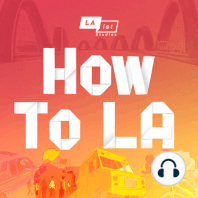16 min listen
HTLA Presents: The Making of Black Barbie from WNYC Studios
FromHow To LA
ratings:
Length:
23 minutes
Released:
Aug 18, 2023
Format:
Podcast episode
Description
Until 1980, Barbie was always white. Mattel had made Black dolls before, but they were sidekicks to the brand’s main character with facial features that didn’t really distinguish them from the other dolls.
In this bonus episode of The Barbie Tapes, we’re bringing you the story of the first Black doll to have the name Barbie as told by WNYC Studios correspondent Tracie Hunte. Tracie speaks with Kitty Black Perkins, Mattel’s first Black designer who brought her own style and preferences to the task of creating the doll. We also hear from Lagueria Davis, director of Black Barbie: A Documentary, on what her research taught her about Mattel’s early efforts to be more representative.
Listen to more of “Notes From America with Kai Wright” from WNYC at www.notesfromamerica.org
This episode was produced by Alana Casanova-Burgess, mixed by Mike Kutchman of WNYC and hosted by Tracie Hunte, who you can follow on Twitter @traciehunte.
In this bonus episode of The Barbie Tapes, we’re bringing you the story of the first Black doll to have the name Barbie as told by WNYC Studios correspondent Tracie Hunte. Tracie speaks with Kitty Black Perkins, Mattel’s first Black designer who brought her own style and preferences to the task of creating the doll. We also hear from Lagueria Davis, director of Black Barbie: A Documentary, on what her research taught her about Mattel’s early efforts to be more representative.
Listen to more of “Notes From America with Kai Wright” from WNYC at www.notesfromamerica.org
This episode was produced by Alana Casanova-Burgess, mixed by Mike Kutchman of WNYC and hosted by Tracie Hunte, who you can follow on Twitter @traciehunte.
Released:
Aug 18, 2023
Format:
Podcast episode
Titles in the series (100)
City Controller Kenneth Mejia Wants To Be Transparent by How To LA
